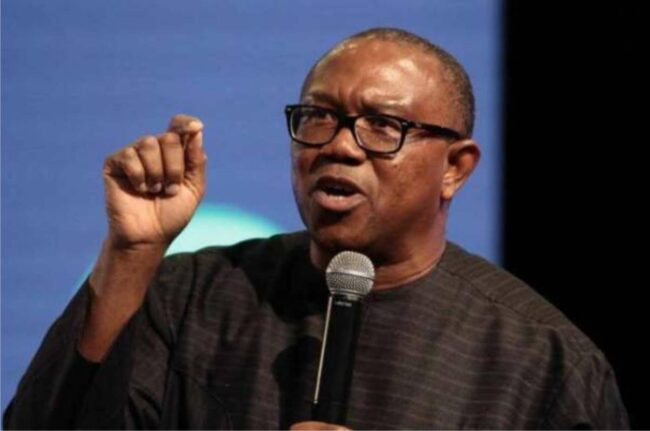The Federal government has been asked to focus its investments on human capital development as a reliable measure to fight trafficking in persons in the country.
Presidential candidate of the Labour Party in the 2023 concluded general elections, Mr Peter Obi, said this even as he further asked the federal government to intensify efforts to close the borders as porous borders have been identified as major driver of trafficking in person.
Obi said this on his verified X handle on Tuesday and tasked the federal government to prioritise education and health among other human development investments to fight trafficking.
According to Obi, “The government must, therefore, take more decisive actions against this societal issue by investing in human development through investments in education, health, and fighting poverty.
“This will give the people a better quality of life, enable them to understand their rights as humans and give them access to better opportunities in life.”
He said; “Today, we join the global community in commemorating the World Day against Trafficking in Persons. The day seeks to end human trafficking and violence against children and strives to eliminate all forms of violence against and exploitation of women and girls.
He said; “Trafficking in persons remains a global societal issue that must be addressed, with measures devised to combat the menace. The 2024 Trafficking in Persons Report by the U.S. Department of State, classified Nigeria as a Tier 2 country, ranking us among countries whose governments “do not fully comply with the Trafficking Victims Protection Act’s minimum standards but are making significant efforts to comply with those standards.”
According to him, “The 2023 Global Slavery Index Report ranks Nigeria 38 out of 160 of the countries with the highest number of slaves which is about 1.6 million. The National Agency for the Prohibition of Trafficking in Persons, NAPTIP, 2019-2022 statistics also show that 61 per cent of human trafficking in Nigeria happens internally, while 39 per cent is generated from cross-border trafficking.
“Insecurity in different parts of the nation, high levels of poverty, high rates of unemployment, and porous borders, have been identified as some of the major drivers of human trafficking in Nigeria, Obi stated.
He also said that with these efforts the commitment to building a nation, where citizens will be free to live and succeed without any form of enslavement remains unwavering.
ALSO READ THESE TOP STORIES FROM NIGERIAN TRIBUNE
